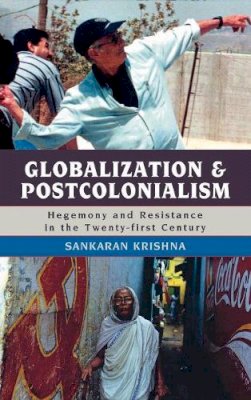63%OFF

Stock image for illustration purposes only - book cover, edition or condition may vary.
Globalization and Postcolonialism: Hegemony and Resistance in the Twenty-first Century
Sankaran Krishna
€ 115.12
€ 42.12
FREE Delivery in Ireland
Description for Globalization and Postcolonialism: Hegemony and Resistance in the Twenty-first Century
Hardback. .
Globalization has become a widely used buzzword, yet popular discussions often miss its deeper realities. This book offers the first clear explanation of the impact of colonialist legacies in a globalized world in an era defined by the "War on Terror." Sankaran Krishna explores the history of the relationship between Western dominance and the forms of resistance that have emerged to challenge it. Moving beyond the simple formulation of "They hate us because we are rich, we are free, and they are crazy," he asks, "What have we done that might generate such animosity? What face has the United States ... Read more
Globalization has become a widely used buzzword, yet popular discussions often miss its deeper realities. This book offers the first clear explanation of the impact of colonialist legacies in a globalized world in an era defined by the "War on Terror." Sankaran Krishna explores the history of the relationship between Western dominance and the forms of resistance that have emerged to challenge it. Moving beyond the simple formulation of "They hate us because we are rich, we are free, and they are crazy," he asks, "What have we done that might generate such animosity? What face has the United States ... Read more
Product Details
Publisher
Rowman & Littlefield
Format
Hardback
Publication date
2009
Series
Globalization
Condition
New
Number of Pages
234
Place of Publication
Lanham, MD, United States
ISBN
9780742554672
SKU
V9780742554672
Shipping Time
Usually ships in 4 to 8 working days
Ref
99-2
About Sankaran Krishna
Sankaran Krishna is professor of political science at the University of Hawaii at Manoa.
Reviews for Globalization and Postcolonialism: Hegemony and Resistance in the Twenty-first Century
An outstanding work of synthesis and critique, made even more valuable for its lucid, fair, and uncompromising discussion of postcolonial theories and thinkers. Because Krishna is able to move seamlessly between the political economy of underdevelopment and postcolonial literary theory and cultural studies, readers are able to grasp the connections among material, institutional, political, and cultural power on a global ... Read more
